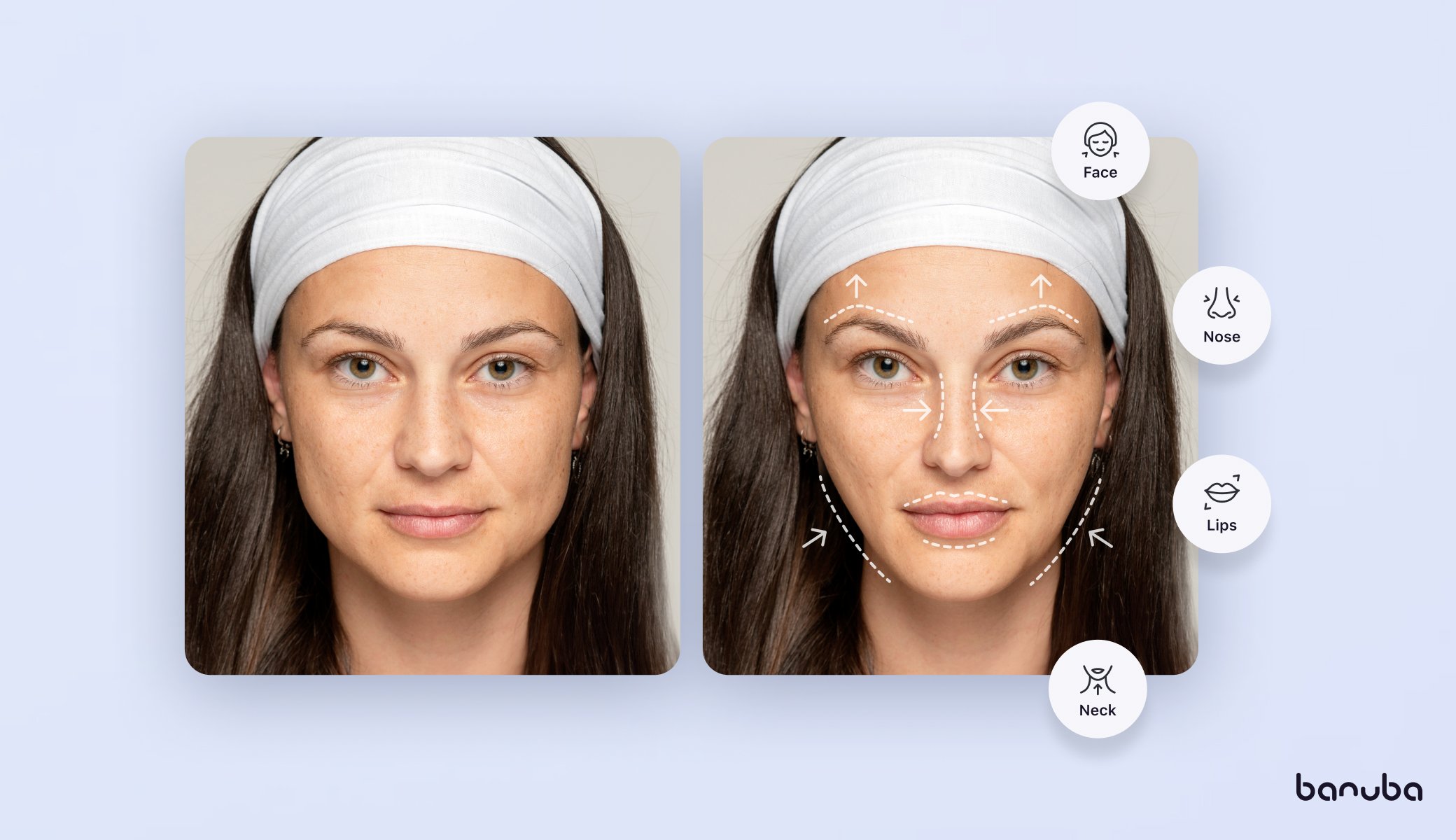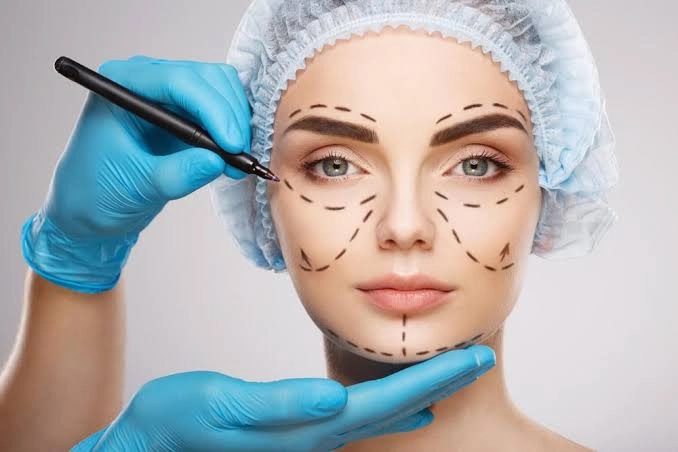Investigating the Psychological and Social Variables That Drive People to Think About Cosmetic Surgical Treatment as a way of Enhancement
The decision to pursue cosmetic surgery typically prolongs beyond mere looks, intertwining with social and emotional dynamics that merit detailed exam. Elements such as self-confidence, pervasive social charm criteria, and the prevalent impact of social media merge to form specific motivations for surgical improvement.
The Function of Self-Esteem
Self-esteem considerably affects an individual's choice to pursue cosmetic surgery. People with reduced self-worth commonly view themselves in a negative light, causing sensations of insufficiency concerning their physical look. This adverse self-perception can drive them to look for medical treatments as an approach of enhancing their self-image. The wish for renovation in one's look is frequently connected to a belief that such modifications will raise their total self-worth and confidence.

Ultimately, the function of self-esteem in the decision-making process relating to cosmetic surgical procedure highlights the complicated interaction in between body picture, individual satisfaction, and mental wellness. Recognizing this relationship is essential for health care professionals to make certain that individuals are making informed decisions rooted in sensible expectations and emotional wellness.
Social Elegance Requirements
Influenced by pervasive media representations and cultural stories, social elegance requirements play a crucial role fit people' perceptions of their very own bodies. These requirements are typically defined by an idealized kind of elegance that stresses characteristics such as slimness, youthful vigor, and proportion. As these ideals are perpetuated with numerous networks, consisting of television, movie, and advertising, individuals frequently internalize these messages, resulting in frustration with their natural appearance.
The effects of these societal norms expand beyond visual preferences; they can affect self-confidence, psychological health and wellness, and social connections. Individuals who view themselves as falling brief of these standards may experience feelings of inadequacy, prompting a desire for plastic surgery as a way of attaining social authorization. This search is usually sustained by the idea that satisfying these ideals will certainly boost not only physical appearance yet also social standing and personal gratification.

Influence of Social Media Site
The impact of societal beauty criteria is more magnified by the surge of social media platforms, where curated photos and idyllic depictions of appeal are ubiquitous. Individuals are frequently subjected to filtered and modified photographs, which often portray unattainable physical qualities. This direct exposure grows a society of comparison, leading people to examine their very own appearance versus these usually unrealistic criteria.
Social network influencers and stars regularly advertise cosmetic procedures, stabilizing the concept that medical enhancements are a sensible means for attaining social suitables (plastic surgery rancho cucamonga). The visibility of these enhancements can develop a perception that going through cosmetic surgical treatment is a standard method, consequently affecting individuals to consider similar interventions as a path to improved self-confidence and social acceptance
In addition, the interactive nature of social media sites permits for immediate responses via sort and remarks, further strengthening the need to satisfy popular charm criteria. Such communications can intensify feelings click this of inadequacy and drive individuals toward cosmetic surgery as a way of getting recognition. Inevitably, social media plays a critical duty fit assumptions of beauty, which considerably affects the decision-making procedures surrounding cosmetic surgical procedure.

Cultural Point Of Views on Appearance
Across numerous societies, perceptions of appearance are deeply rooted in historic, social, and economic contexts, forming people' views on charm and value. In several societies, appearance functions as a considerable pen of identity, affecting social condition, expert opportunities, and personal relationships. For example, in some cultures, light skin is commonly related to wide range and benefit, while others may idealize darker complexion as symbols of toughness and credibility.
Additionally, traditional beauty criteria are often bolstered via social stories, media representations, and family affects, leading to differing suitables throughout various regions (plastic surgery rancho cucamonga). In Western cultures, the emphasis on young people and fitness frequently drives people toward aesthetic improvement, while in specific Eastern cultures, more subtle changes straightened with typical aesthetics might be chosen
Globalization and the expansion of digital media have additionally made complex these characteristics, creating a hybridization of beauty suitables that transcends geographical boundaries. As individuals significantly navigate these social stories, the pressure to adapt certain look criteria can cause the desire for cosmetic surgical treatment, showing a complex interaction of cultural values and personal desires. Comprehending these cultural viewpoints is important in resolving the motivations behind cosmetic surgical treatment considerations.
Mental Effects of Plastic Surgery
Many individuals seeking cosmetic surgery record experiencing profound psychological effects that can significantly alter their self-perception and emotional well-being - plastic surgery rancho cucamonga. The wish for physical improvement often comes from underlying concerns such as low self-worth, body dysmorphic disorder, or social stress relating to charm criteria. For some, the immediate post-operative phase can bring about a momentary boost in positive self-image and satisfaction with their look, cultivating a sense of empowerment
Nonetheless, these positive feelings might not be enduring. Study indicates that while some individuals experience improved self-worth, others might deal with increased stress and anxiety or depression if their assumptions are not satisfied. This discrepancy can occur from impractical perfects perpetuated by find out this here media representation and social stories bordering beauty.
Furthermore, the psychological ramifications of plastic surgery extend beyond the person. Relationships with family members and buddies might be strained as social characteristics shift, resulting in sensations of isolation or alienation. Inevitably, the emotional impacts of plastic surgery are complex and diverse, requiring careful consideration by both possible clients and doctor to make sure educated decision-making and reasonable expectations.
Conclusion
Finally, the choice to seek cosmetic surgical procedure is substantially affected by a mix of self-esteem concerns, social elegance requirements, and social viewpoints on appearance. The prevalent reach of social networks better worsens these stress, advertising unrealistic perfects that individuals commonly strive to attain. Understanding these social and mental aspects is essential for addressing the motivations behind cosmetic surgical treatment, highlighting the demand for an extra nuanced discussion surrounding beauty and self-acceptance in contemporary culture.
The choice to go after cosmetic surgery usually prolongs beyond mere appearances, intertwining with mental and social dynamics that warrant complete examination. Inevitably, social media plays a crucial function in forming perceptions of beauty, which dramatically influences the decision-making processes bordering cosmetic surgery.
As individuals progressively browse these social stories, the stress to adjust to particular appearance criteria can lead look at this web-site to the need for cosmetic surgery, showing an intricate interplay of cultural values and personal aspirations.In final thought, the decision to pursue cosmetic surgery is substantially influenced by a combination of self-worth issues, social beauty requirements, and cultural point of views on appearance. Comprehending these mental and social variables is important for dealing with the motivations behind cosmetic surgical treatment, highlighting the demand for an extra nuanced discussion surrounding elegance and self-acceptance in contemporary society.